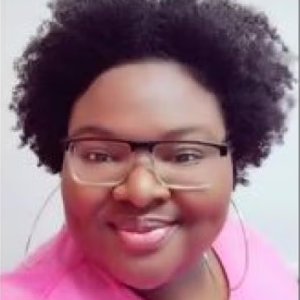Field education is a core component of graduate education at Case Western Reserve University’s Jack, Joseph and Morton Mandel School of Applied Social Sciences. Our field faculty team makes every effort to help you obtain a field placement that is conducive to your academic and professional development goals and supports you throughout your field practicum until graduation and beyond.
These opportunities—which meet requirements for individuals pursuing dual degrees—are a core component of the Master of Social Work program and account for over 20% of degree requirements. Field education helps social work students learn and integrate essential elements of professional social work practice.
What Sets the Mandel School’s MSW Field Education Apart?
By bridging classroom learning and real-world practice through evidence-based practices in supported learning environments, you’ll get to apply academic knowledge and contribute fresh perspectives to enrich agency settings and create a more just world.
Our Transformative Experience
In our MSW program, you’ll also have opportunities to collaborate with social work and nonprofit organizations across various areas of learning, such as child welfare, research, policy, healthcare, community development, behavioral health, school social work, drug rehabilitation centers, resettlement centers, government agencies and more.
Our Exclusive Field Education Award
For nearly 20 years, our program has been one of the only MSW programs in the U.S. to grant field awards to all full-time, on-campus students in the weekly format. While field education is typically an unpaid experience, we offer a field education award to help offset field placement expenses.
Our Specialized Training Areas
At the Mandel School, MSW students can learn in community partnership placement settings that will provide learning opportunities within the specialization areas of:
- Adult Behavioral Health
- Child and Family Practice
- Community Practice for Social Change
- Trauma and Healing
Learn More About Our Field Education Trainings
Our Extensive Network
With over 1,000 partner organizations across Northeast Ohio and the U.S., the Mandel School offers field practicums in a variety of community-based settings, which provide valuable opportunities to build critical skills under the guidance of experienced social work and change leaders. And unlike many of our peer institutions, all MSW students have the opportunity to engage in a mutual selection placement process while selecting and interviewing for their field practicum setting.
Explore Our Field Education Resources
Our Comprehensive Field Support Team
Provided by the Mandel School, each MSW student in a field practicum is supported by a field faculty advisor, who works closely with students, assigns grades, evaluates student performances, participates in student-led conferences each semester and more.
You’ll also have access to field instructors—professional social workers in the placement setting—who supervise day-to-day experiences, provide weekly supervision, identify and facilitate field learning opportunities and approve field education hours.
Questions about field education at the Mandel School can be answered by Nicole Parker, Assistant Dean of Field Education and External Relations, at mandelfield@case.edu or 216.368.2292.

My field education practicum, Think Tank Inc., offered training and coaching for organizations serving families and communities impacted by poverty. They focus on producing research publications and policy work, but they also host conferences and seminars and work closely with government and advocacy leaders to help advance their research and causes. I helped with the focus groups, Cost of Poverty Experience simulations, and data reports and summary presentations.

